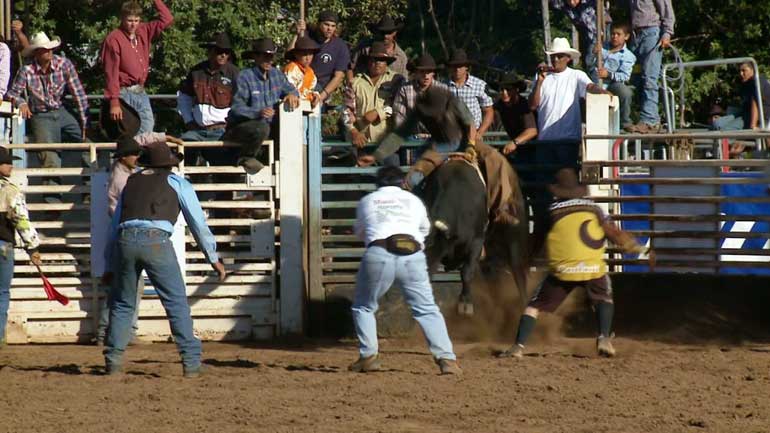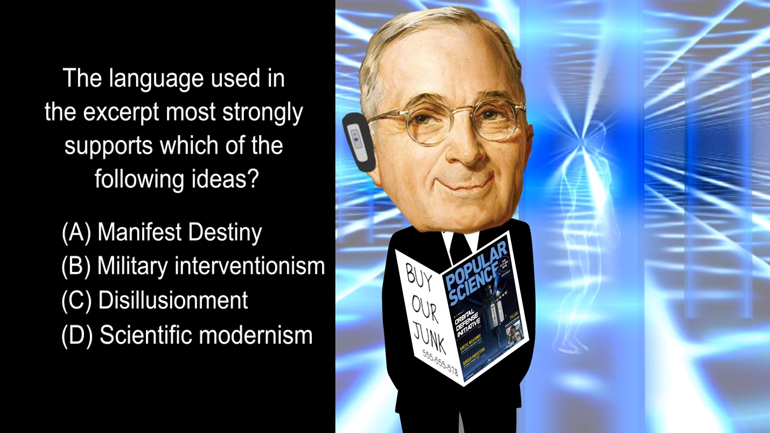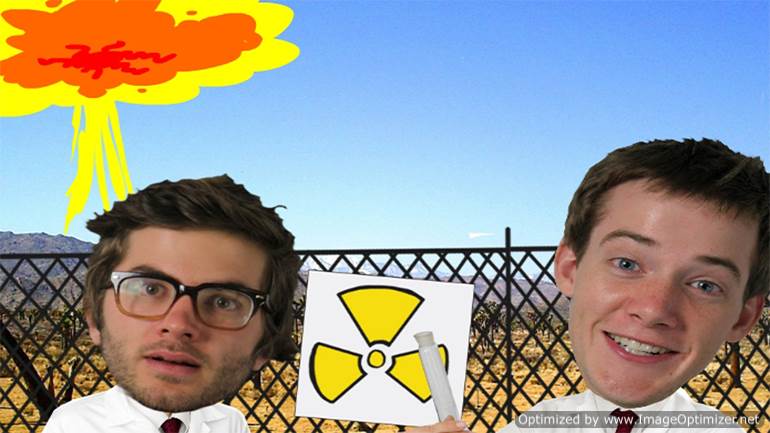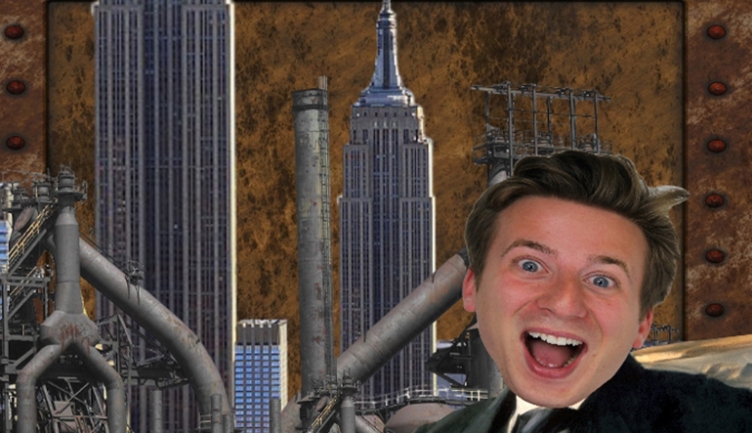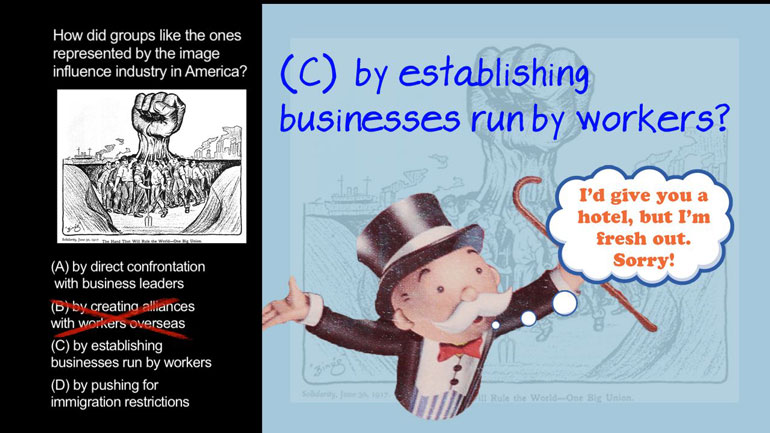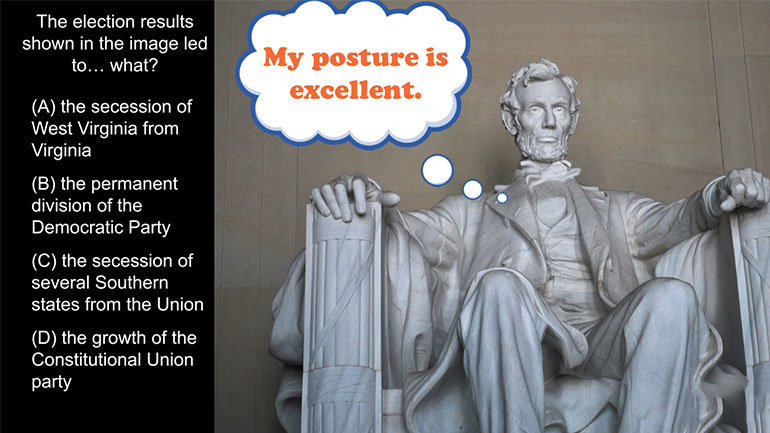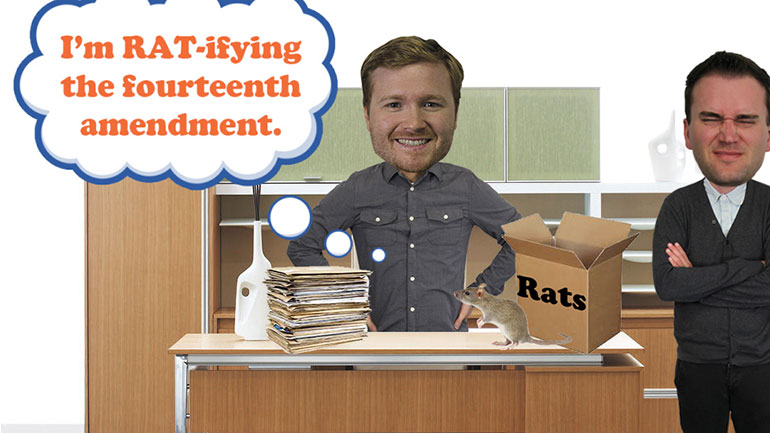ShmoopTube
Where Monty Python meets your 10th grade teacher.
Search Thousands of Shmoop Videos
Playlist U.S. History: 1890 – 1945 10 videos
AP U.S. History 1.1 Period 7: 1890–1945. The Clayton Antitrust Act marked a new period in American labor relations because it...what?
AP U.S. History 1.2 Period 7: 1890-1945. Antitrust laws like the Clayton Act were a direct response to what development in the United States economy?
AP U.S. History 1.3 Period 7: 1890-1945. How did the rise of the corporations affect the social order of the time?
AP U.S. History 2.4 Period 7: 1890-1945 223 Views
Share It!
Description:
AP U.S. History 2.4 Period 7: 1890-1945. Besides forcing Japan to surrender, what was another primary goal of dropping the second atomic bomb?
Transcript
- 00:00
[ musical flourish ]
- 00:02
And here's your Shmoop du jour, brought to you by atomic warfare,
- 00:06
the long-lasting struggle between protons and neutrons.
- 00:10
All right, well, give this excerpt a read.
- 00:12
[ mumbles ]
Full Transcript
- 00:16
Ugh. Give 'em hell, Harry.
- 00:17
All right, and now the question:
- 00:19
Besides forcing Japan to surrender, what was another
- 00:22
primary goal of dropping the second atomic bomb?
- 00:26
And here are your potential answers.
- 00:28
[ mumbles ]
- 00:31
All right. Well, the first atomic bomb dropped on the Japanese city
- 00:34
of Hiroshima cost somewhere between 90 and 160 plus thousand lives.
- 00:40
The second atomic bomb,
- 00:41
dropped on Nagasaki a few days later, killed between
- 00:44
60,000 and 80,000 people. Right here.
- 00:48
Though the Americans reportedly used the first bomb to avoid
- 00:50
a costly ground invasion of Japan,
- 00:52
many historians believe the second atomic bomb was
- 00:55
detonated for another reason.
- 00:57
Let's see which answer reveals that train of thought.
- 01:01
Was another primary goal of
- 01:02
dropping the second bomb to A -
- 01:04
eliminate Japan's future military capabilities?
- 01:08
Well, with Hiroshima obliterated and Japan's allies defeated,
- 01:11
the country's potential for future military capabilities
- 01:14
was pretty much already gone. So it isn't A.
- 01:18
Could a primary goal of dropping the second bomb have been C -
- 01:21
thoroughly testing a new technological breakthrough?
- 01:24
Well, the atomic bomb had already been tested on Hiroshima,
- 01:27
and if they truly needed another test, the U.S.
- 01:29
could've used other, less populated locations.
- 01:32
So that knocks out C.
- 01:34
Might the second bomb have been used to D -
- 01:37
punish Japan for its participation in the Axis Powers?
- 01:40
You know, with the Nazis and all those people?
- 01:42
Well, while anger and racism against Japan were widespread
- 01:45
at the time, there's little historical evidence to suggest
- 01:48
the second atomic bomb was primarily an act of vengeance.
- 01:51
So it's not D, either.
- 01:53
Which means the primary goal of dropping the second atomic bomb
- 01:57
was probably B - to demonstrate the extent of American power to the Soviet Union.
- 02:02
Both the U.S. and the Soviet Union wanted to emerge
- 02:04
from World War II as a global superpower,
- 02:07
and most historians agree that dropping the second bomb
- 02:10
was intended to intimidate the Soviet Union rather than
- 02:13
to assure a military victory.
- 02:15
So B is the correct answer.
- 02:16
The use of the atomic bomb will always be controversial.
- 02:20
Couldn't there have been a better solution?
- 02:22
Yeah, like how about this?
- 02:25
[ things clattering and breaking ]
Related Videos
AP U.S. History Diagnostic 1. Relationships like the one shown in the image resulted in the development of...what?
AP U.S. History Diagnostic 15. How did groups like the ones represented by the image influence industry in America?
AP U.S. History Diagnostic 10. What led to the splintering of the political parties shown in the image?
AP U.S. History Diagnostic 11. The election results shown in the image led to...what?
AP U.S. History Diagnostic 12. How did the Reconstruction Acts open up political opportunities for former slaves?



